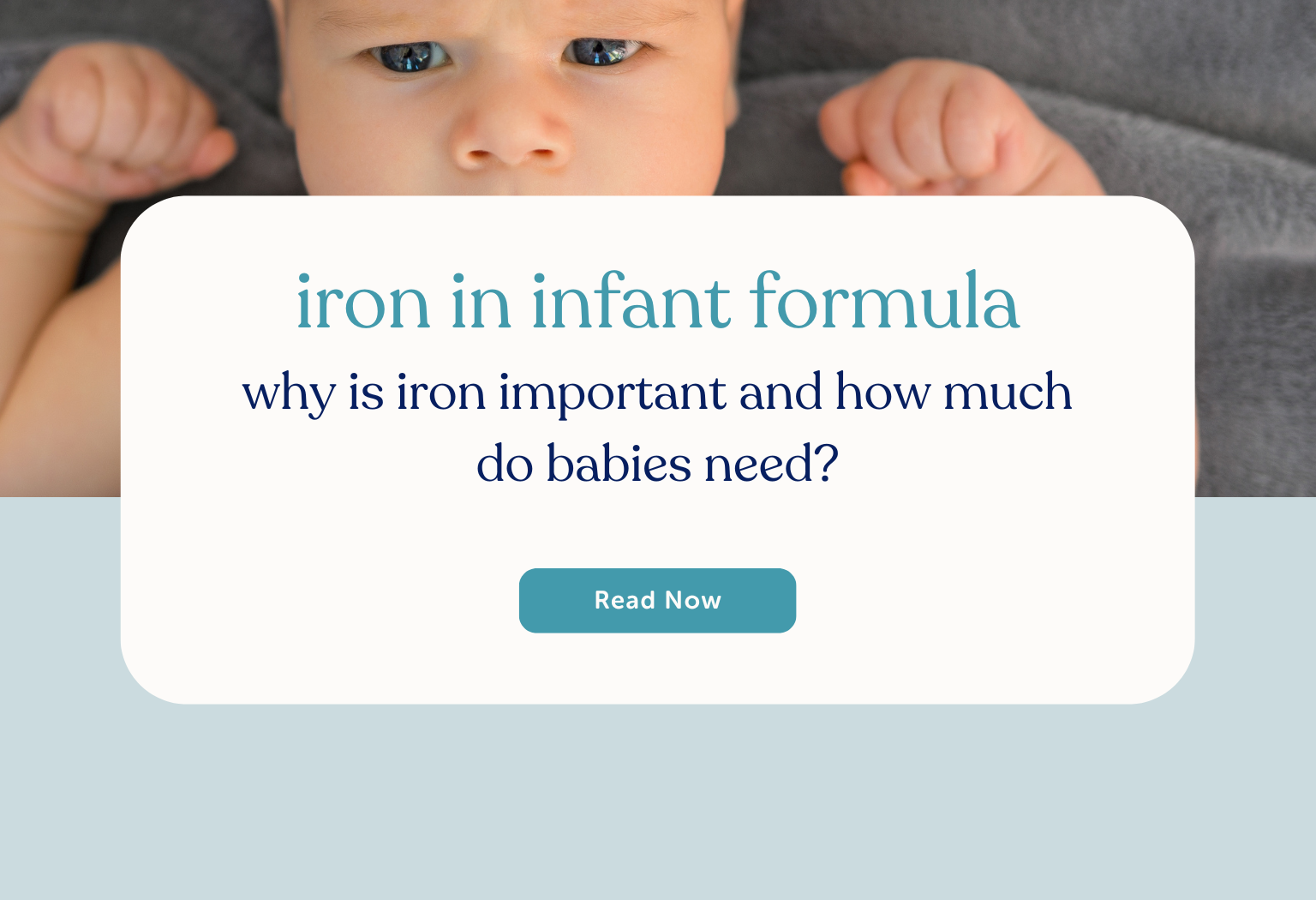Iron plays a vital role in supporting a baby’s growth and development. This essential nutrient is responsible for transporting oxygen from the lungs to the rest of the body, strengthening the immune system, and aiding in cellular energy production. During the first 4-6 months of life, babies depend on the iron stores inherited from their mothers, typically accumulated during the third trimester of pregnancy. Consequently, maternal iron deficiency and premature birth can increase the risk of iron deficiency in infants. As babies grow, their iron stores deplete, making dietary sources of iron increasingly important.
Why Iron is added to infant formula?
Iron is added to infant formula to ensure babies receive an adequate amount of this crucial nutrient, especially when breast milk alone may not provide sufficient iron. Standard infant formulas contain a significantly higher iron concentration than breast milk due to the lower bioavailability in formula (breast milk has a 50% bioavailability compared to 5% in infant formula). For perspective, breast milk contains approximately 0.3 mg/L of iron, while most infant formulas contain between 8-14 mg/L. Iron-fortified formula helps prevent iron deficiency anaemia, which is linked to impaired neurodevelopment, growth issues, and weakened immunity. Ensuring infants receive enough iron, whether through breast milk supplemented with iron or iron-fortified formula, is essential for their overall health and development.
What is the difference in iron fortification levels between the USA vs. Europe?
The American Academy of Pediatrics (AAP) recommends that infant formulas be fortified with 10-12 mg/L of iron. However, recent studies suggest that excessive iron intake might negatively impact neurodevelopment, growth, and increase infection risks. As a result, the European Food Safety Authority (EFSA) and the European Society for Pediatric Gastroenterology Hepatology and Nutrition (ESPGHAN) recommend a lower level of 2 mg/L of iron in infant formula, adequate for maintaining healthy iron stores in the first six months of life. Ongoing research aims to determine the optimal iron levels in infant formula for maximum health benefits.
How can I identify whether a formula has adequate iron levels?
To identify iron-fortified infant formulas, look for statements such as “milk-based powder with iron” on the packaging. This indicates that the formula meets the minimum iron requirements set by the FDA. For instance, Kendamil's formula labels clearly state their iron content, ensuring parents are informed about the nutritional value they provide.
What are the iron requirements in infant formula in the United States?
USA regulations require infant formulas to contain at least 1 mg of iron per 100 calories.
This requirement is higher than European guidelines because US formulas must be nutritionally complete for infants aged 0-12 months.
What is the recommended iron intake for infants in the United States?
For infants 0-6 months old, the Adequate Intake (AI) for iron is 0.27 mg/day.
For infants 6-12 months old, the Recommended Dietary Allowance (RDA) for iron is 11 mg/day.
Ensuring adequate iron intake in infants is crucial for their growth, neurodevelopment, and overall health. Choosing the right infant formula with appropriate iron levels can help meet these nutritional needs effectively.
For more detailed information, you can refer to UpToDate's guidelines on iron deficiency in infants.

